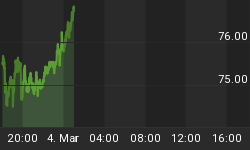Bloomberg is reporting Senate Weighs Aid to 2.2 Million Subprime Borrowers
U.S. lawmakers will have to consider providing aid to about 2.2 million subprime mortgage borrowers who are at risk of defaulting and losing their homes, Senate Banking Committee Chairman Christopher Dodd said today.
"The impact of losing 2.2 million homes I suspect will be in a lot of areas of our cities and towns that are already pretty hard hit, so we clearly want to look at that and legislate," Dodd, a Democrat from Connecticut, told reporters in Washington after a speech to the National League of Cities.
Foreclosures involving homeowners who took out subprime loans from 1998 until 2006 could cost $164 billion, Dodd said, quoting a December study by the Center for Responsible Lending in Durham, North Carolina. The government needs to provide at- risk homeowners "forbearance or something like that to give them a chance to work through and get a new financial instrument here that they can manage financially better," Dodd said.
[Mish: Why does the government "need" to do anything of the kind? If is stupid government policies in the first place that led to this mess. If there is a "need" to do anything it is the need to get rid of Fannie Mae, and all the affordable housing legislation that Congress has passed]
Congress "may need to do something much more quickly to provide some protection or you could end up with a lot of poverty and blight," Dodd said. Federal aid of a few billion dollars "may be a lot less costly" than $164 billion in lost wealth, he said.
[Mish: Let's face the facts. This has nothing to do with blight. This has everything to do with bailing out your banking cronies at the expense of the prudent. It also has to do with buying votes.]
Mortgage defaults during the next two years may rise to $225 billion, with about $170 billion tied to subprime loans, according to a report yesterday by analyst at Lehman Brothers Holdings Inc. led by Srinivas Modukuri. Subprime borrowers are those with poor or limited credit backgrounds or high debt.
Dodd didn't specify the channel through which the government would offer aid. "I don't want to settle on the specifics of it, but clearly we are looking at what we can do to help out."
[Mish: I am 100% confident that whatever program is initiated will be what lending institutions ask for. None of it will do consumers any good at all.]
Dodd reaffirmed a plan to introduce a bill that would combat predatory lending. "There is a difference between a subprime lender and a predator, and I don't want to lose the subprime lender" he said.
"Finally the federal regulators are beginning to indicate that they want to start requiring similar standards to be used for prime and subprime lending," Dodd said, referring to the new guidelines.
[Mish: Like the Fed, Congress is acting 4 years and trillions of dollars too late. Where were you 4 years ago when something needed to be done?]
"I am a strong advocate of subprime lending," Dodd said. "I don't want that word to become a pejorative as junk bonds did."
[Mish: The fact that government is a "strong advocate of subprime lending" is one of the reasons we are in this mess. You and your "ownership society" have no business promoting housing over renting. It is the market's job to do that. When you interfere "stuff happens" to put the term politely. By the way, subprime is already as pejorative as "junk". And speaking of junk, take a look at corporate bonds. Those too are nearly all junk and we are about to have a second purge of junk bond lending as well.]
This bubble is exactly the result of both the Fed and Congress interfering against normal market forces. The market has now taken care of subprime lending (or rather is in the process of doing so) and any bills Congress passes at this point are just going to cause additional distortions. This idea was outlined in Malinvestments, Predatory Lending, and Demagogues.
It's high time Congress spares us the Dudley Do-Right Charge in favor of letting the market take care of it. But no! Congress never learns. Or perhaps I mean they have learned too well. To stay in power, Congress takes handouts from the financial industry (and every other industry that wants to buy legislation for that matter) while simultaneously attempting to buy votes from the public.
No doubt the inflationists will be all over this, but some sort of reaction by the Fed or government was predicted well in advance by me and most likely a few other deflationists as well. I have no doubt the Fed will be cutting interest rates as well. But as I have pointed out before, such interference policies work until they don't. I think we have finally reached the point where these policies will no more work here than they did in Japan.
Three Reasons Bailouts Will Fail
-
Consumers are going to be unable to take on more debt in the face of falling home prices.
-
A recession will force a cutback in consumer spending.
-
Credit will tighten up such that banks will be unwilling to lend given falling asset prices and rising credit risk.
Number 3 above is happening already and it will spread further. A significant repricing of both assets and risk will be the result. Unfortunately this tsunami is about to hit the baby boomers just as they think they are ready to retire.















